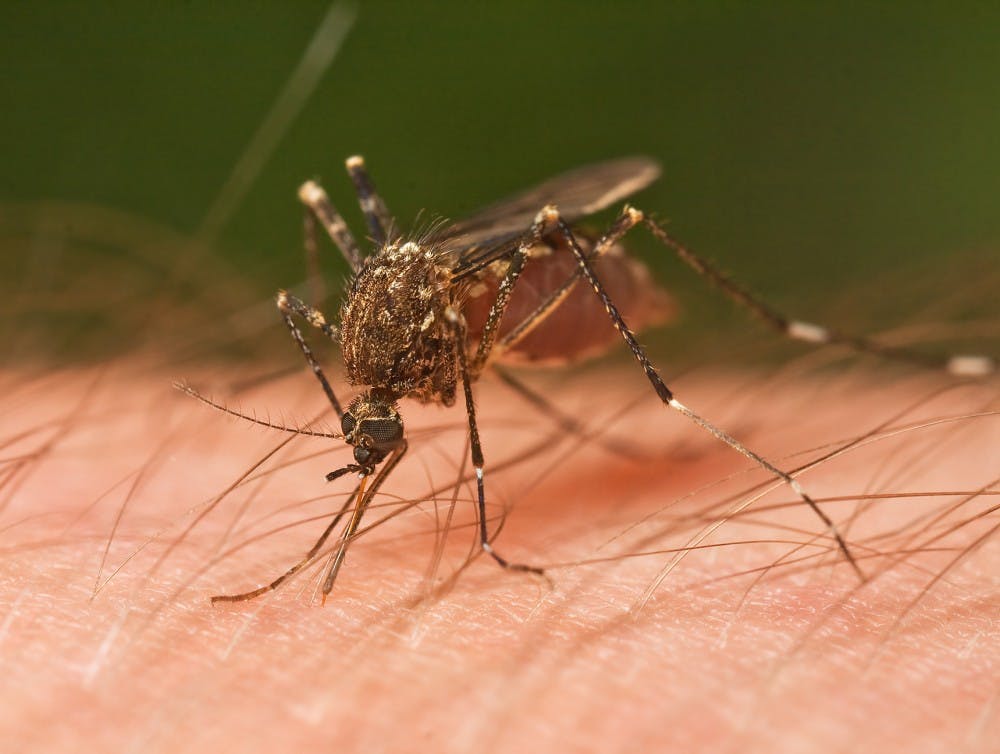In a new study at the Johns Hopkins Bloomberg School of Public Health and the University of Maryland School of Medicine, microbiologists genetically modified mosquitoes to be more resistant to Plasmodium, the parasite that causes malaria, by changing the composition of the mosquitoes’ gut bacteria.
An estimated 300-600 million people suffer from malaria each year worldwide. More than one million people die from malaria each year, mostly children in sub-Sahara Africa younger than 5 years old. Anopheles gambiae mosquitoes transmit the disease from person to person.
Insecticides, drugs and mosquito net use has contributed greatly to stopping the spread of malaria. However, mosquitoes have developed resistance to insecticides, and Plasmodium has developed resistance to the medications doctors prescribe, such as chloroquine. These developments make the process of eradicating malaria increasingly difficult.
Scientists have recently genetically modified (GM) mosquitoes to be resistant to Plasmodium. Yet researchers are concerned about how well GM mosquitoes could compete and mate with wild mosquitoes to pass along the desired resistance to their offspring.
The team, led by Andrew Pike, a postdoctoral fellow at the University of Maryland School of Medicine, attempted to make mosquitos more resistant to Plasmodium infections by mutating immune-related genes in the mosquitoes’ guts. One of two genes was mutated — either the carboxypeptidase (CP) or vitellogenin (Vg), and both strains of mosquitoes were resistant to both bacteria and Plasmodium.
Pike and his team then mated each of the strains with wild mosquitoes. They found that mutations didn’t lead to any changes in the number of eggs laid, rate at which eggs hatched or the ratio between males and females, as well as size of mosquitoes. Further, they found that both strains had significantly reduced numbers of bacteria in their midguts compared to wild mosquitoes.
The researchers then tested how competitive their new strains of mosquitoes were compared to wild mosquitoes.
They kept equal numbers of GM mosquitoes and wild mosquitoes in a cage together and monitored the population size for 10 generations to ensure that it stayed constant. They found that 90 percent of the offspring in each generation carried the GM trait.
They also discovered that the GM mosquitoes in the 10th generation showed much higher resistance to Plasmodium than the 10 percent of mosquitoes that didn’t carry the resistance trait. The results indicate that GM mosquitoes have a biological advantage over wild mosquitoes.
Next they looked at how mutations to two other genes that increase resistance to bacteria and Plasmodium alter how mosquitoes mate. The team raised GM and wild mosquitoes, giving some antibiotics and others none. Treating mosquitoes with antibiotics resulted in the removal of microbes from the guts of the mosquitoes.
They then mated GM mosquitos with wild ones and treated all the offspring with antibiotics, finding that the parent mosquitoes passed down the gene 75 percent of the time to their offspring.
The researchers hypothesized that the mosquitoes may have adapted to changes in their microbiota, caused by both the genetic mutation and antibiotic treatment, and subsequently altered how they chose a mate.
When the team did not treat the mosquitoes with antibiotics, meaning their microbiotas were intact, they found that male mosquitoes preferred to mate with a female of the opposite type: GM males preferred to mate with wild females and wild males preferred to mate with GM females.
The researchers noted they may have observed different results if they had conducted the same experiments in nature rather than in the laboratory. Nevertheless, they proved that GM mosquitoes have the potential to compete with wild mosquitoes and could spread Plasmodium resistance among mosquito populations, greatly decreasing the incidence of malaria.





